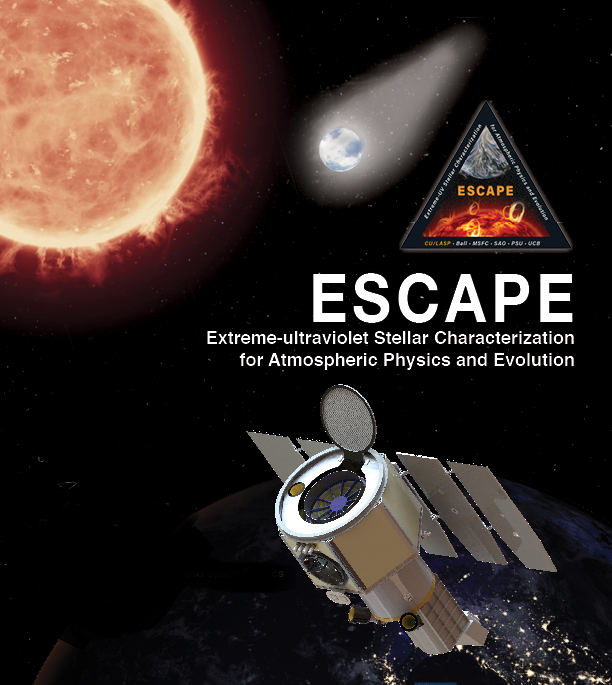What a scientist team from Graz is doing for NASA
NASA has selected proposals for four missions that would study cosmic explosions and the debris they leave behind, as well as monitor how nearby stellar flares may affect the atmospheres of orbiting planets.
"These promising proposals under the Explorers Program bring out some of the most creative, innovative ways to help uncover the secrets of the universe," said Thomas Zurbuchen, associate administrator of the agency's Science Mission Directorate in Washington. One of the selected proposals is ESCAPE, which stands for Extreme-ultraviolet Stellar Characterization for atmospheric Physics and Evolution. ESCAPE would study nearby stars, watching for rapid, strong ultraviolet flares. It aims to determine how likely such flares are to strip the atmosphere from a rocky planet orbiting the star, affecting conditions for habitability.
Kevin France at the University of Colorado is the principal investigator of this team, however, he does have Austrian support. A big part of the team of scientist is from the Graz Insistut für Weltraumforschung (IWF). The IWF-Team is led my Luca Fossati. He explains: "Stars emit radiation across the entire frequency spectrum with very different energies, from high-energy X-rays to low-energy radio signals. The EUV radiation, whose wavelength band lies between X-rays and ultraviolet light, can only be observed from space and has therefore only been detected for the sun and the next dozen stars." Ute Amertstorfer, another IWF-Scientist and member of the ESCAPE science team further elaborates, that the only satellite eploring the EUV radiation was EUVE, a mission that started in 1992 and ended in 2001. "The technology developed so much further in the past 30 years, we now have the possibility to measure the etreme ultraviolet radiation of hundreds of starts," says Amertstorfer.
Following detailed evaluations, the agency intends to select two proposals in 2021 to be the next astrophysics missions under the Explorers Program. The selected missions will be targeted for launch in 2025.

